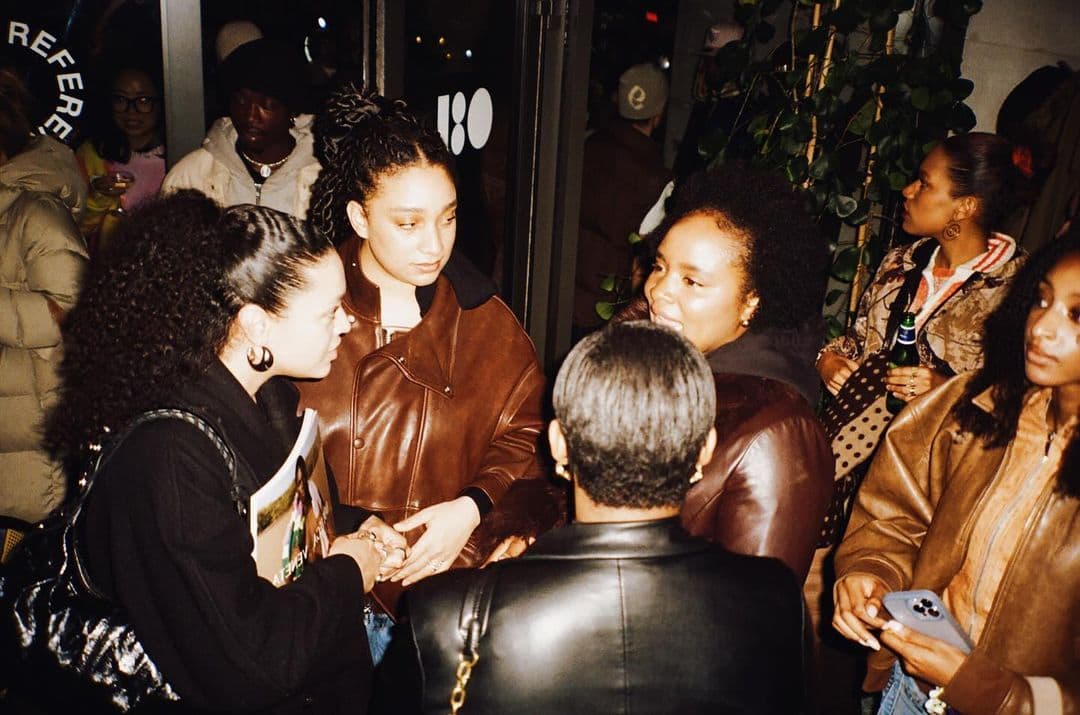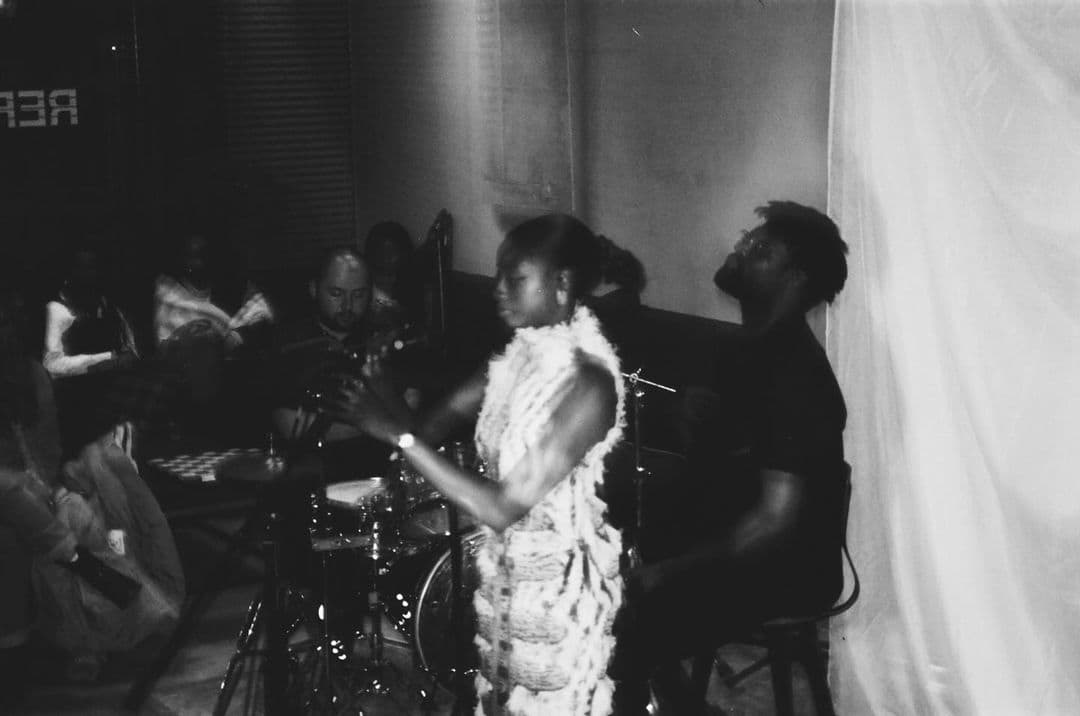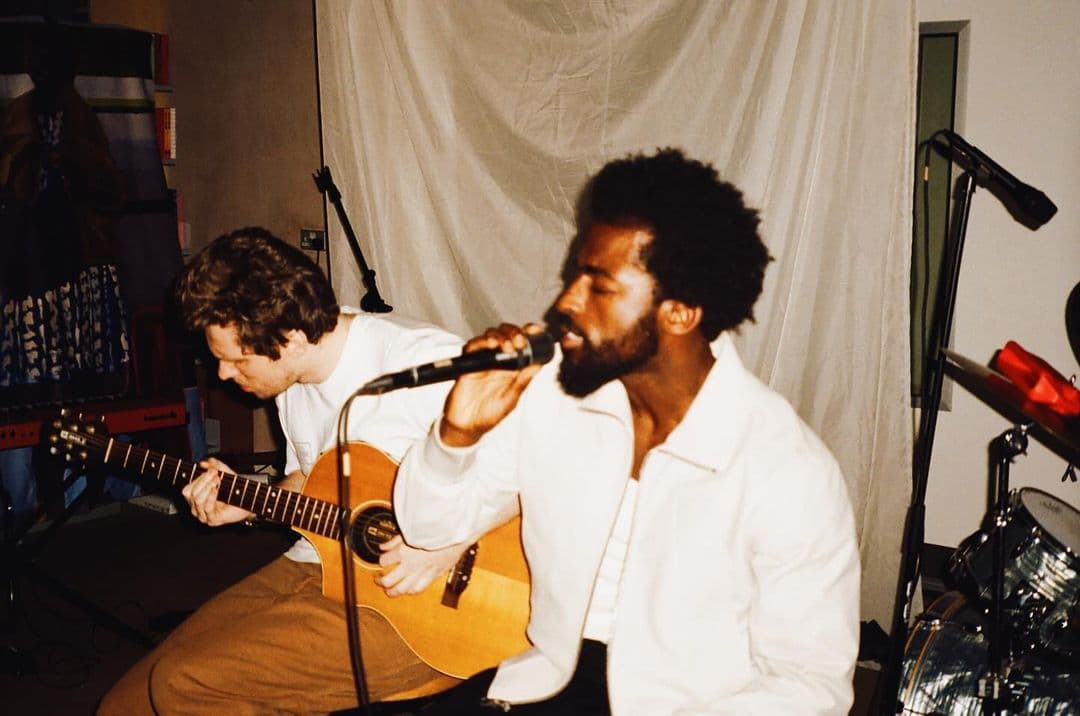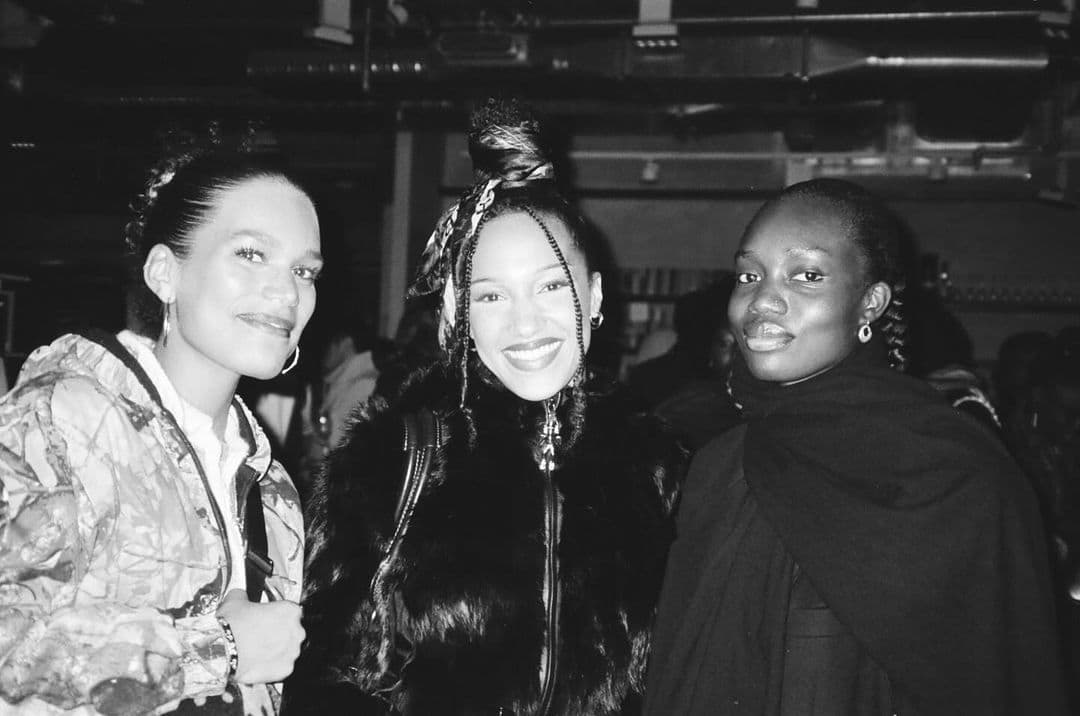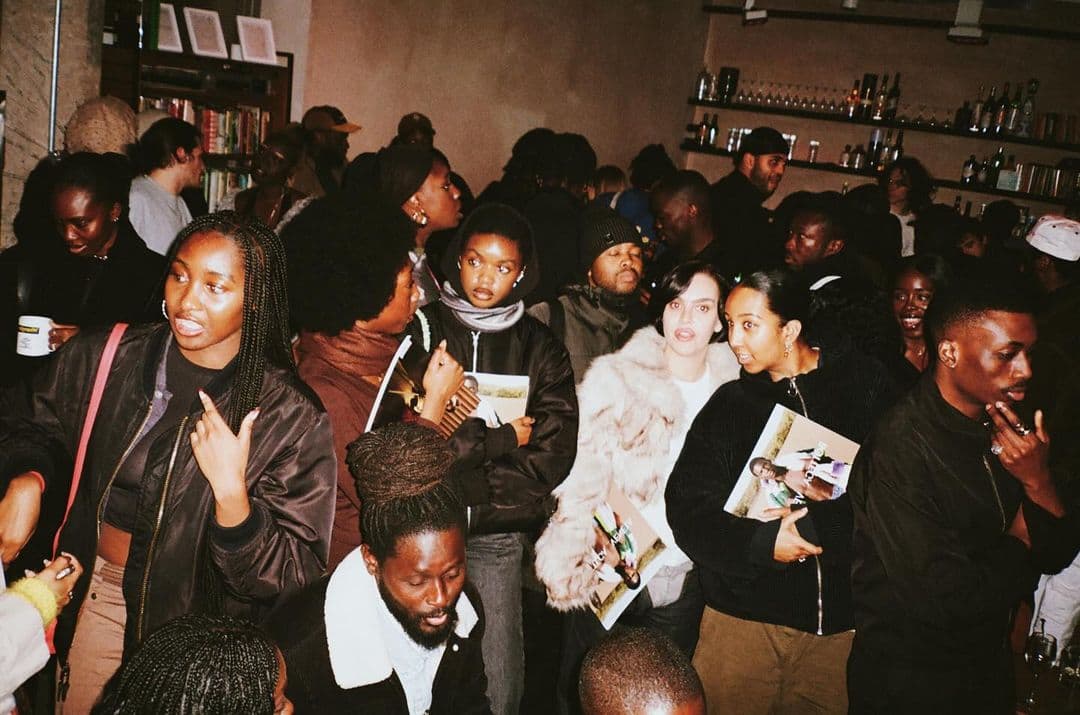The Parisian Collective Re-activating a Cultural Icon of Pan-Africanism Touchdown for a Conversation in London
Air Afrique, a once-thriving pan-African airline carrier connecting the continent to the world, has been reimagined as a curated cultural magazine supported by Italian luxury fashion house Bottega Veneta, as part of its ongoing programme to bring defunct magazine titles back into the cultural zeitgeist , which is started with cult gay magazine Butt in 2022.
Founded in 1961 and ceasing operations in 2002, the Air Afrique airline was a partnership between 11 French-speaking West African states who had newly gained independence including Benin, Burkina Faso, Cameroon, Central African Republic, Chad, Gabon, Ivory Coast, Mauritania, Niger, the Republic of the Congo, and Senegal. Originally funded by the French government, as the airline grew in popularity the 11 member states took full control in 1963, and became the only shareholders. With a focus on serving countries in Europe and the Middle East, as well as New York in the US and regional routes. The carrier survived through restructures and bail-outs through the 1980s and 1990s, but after 9/11 Air Afrique was declared bankrupt in 2022.
The revived Air Afrique brand has been revived into a bi-lingual magazine – published in both English and French – and is the brainchild of a Parisian collective led by founder and creative director (as well as “Air Afrique” archive manager) Lamine Diaoune, co-founders Djiby Kebe and Jeremy Konko, editors Zhedy Nuentsa and Ahmadou-Bamba Thiam, design director Axel Pelletanche, and editor-in-chief Amandine Nana.
In the hands of this dynamic collective, Air Afrique’s legacy is assured, as the platform the creatives have developed is a celebration of Africa and it’s diaspora. Providing accessibility to – and a space for – artists, artisans, film-makers, designers, musicians and more to express themselves authentically. The inaugural issue was launched at the Centre Pompidou during Paris Men’s fashion week in 2023 in partnership with Bottega Veneta (who served as the magazines sole advertiser with a selection of tailored campaign images shot by Senegalese photographer Malick Bodian, who captured models in blankets created by Bottega Veneta atelier member Abdel El Tayeb), and marked another milestone in the burgeoning impact that those who were either born in Africa, or whose heritage derives from the continent, are having on the industry.
The choice of an airline (especially one owned and operated autonomously by African states) as inspiration is pertinent, as it goes some way towards reframing the continents cultural contributions in a new light. From its aspirational images of business travellers and ad campaigns of the routes the airline served to the flight attendants in their crisp uniforms.
The first issue is an mining of Africa’s past, present, and future featuring an interview with Senegalese sociologist Fatou Sow (who specialises in the sociology of gender), a profile on the life and work of the first sub-Saharan African woman to direct a commercial feature film Safi Faye, an exploration of dancehall music in Martinique, and a feature on photographer Paul Kodjo described as “a keen observer of post-independence Côte d’Ivoire” in the latest issue. Offering just a small window into the pioneering voices who are at the forefront of this period of transition into a new era of economic progress, through business, dialogue, and collaboration, akin to that the time of the airlines founding when several African countries were stepping into their independence.
Acquiring the rights to Air Afrique’s name and logo founder and chief-archivist Lamine Diaoune adopted the visual identity of the brand, which he observed as a cinephile watching retro 1960s films from sub-Saharan Africa. As part of its expansive creative endeavours to not simply exist as a singular entity, Air Afrique produced in-flight magazine Balafon, sponsored a photography prize, which Paul Kodjo won in 1963, and partnered with the Dakar Biennale and the FESPACO film festival. The collective is giving the brand-new relevance and projecting it into the consciousness of a new generation through exhibitions, a film club in Paris, an apparel line, curated gatherings (London being the next location on their ‘Air Afrique Stopover’, with the collective revealing plans to explore the US next), and of course the magazine itself as a tome to amplify those who work and play on and off the continent.
In conversation with the collective, art researcher and curator Cynthia Igbokwe discussed publishing as a tool for artistic and cultural outreach, the power of the archive, and their commitment to highlighting “the historical and cultural diversity of the African continent and its diaspora”.
On Virgil Abloh and navigating the luxury fashion industry:
Co-founder Djilby Kébé: He was really supportive of Air Afrique, he talked to us (the collective) about the project as he wanted to know more, and he gave us a lot ideas. And when he puts a spotlight on you [we found it] easier to navigate in those worlds. With him around us, it helped us to not shy away from who we were, by stepping into what we wanted to achieve…It’s not where we are actively looking to right now, but we are aware that (luxury fashion) can help you spread your ideas at an (elevated) level.
On working with Bottega Veneta:
Djilby Kébé: When we signed the contract, we said we can work with you, but you won’t be able to say something [to change our content], if you back us its important for us to always stay true to the project. I don’t want to take financial help from someone, and they say you have to put this in the magazine, you have to shoot her or him, this would not work for the collective. We have a good relationship with them (Bottega Veneta) and this is why it was a success, because they wanted to support our initiative. It was unexpected that they would work with a young magazine like ours which started in 2020 so we are thankful to them.
When you have a project like ours, focussed on African culture and Pan-Africanism, working with Bottega Veneta makes sense, as they are one of the only people who could give us [financial backing]. So, its was logical to partner with them on this project. It also gave more popularity to the project, but we have to be true to ourselves and not change our message, enabling us to shout-out our community, by remaining accessible to a broad range of people, not just a small crowd.
On plans for the next issue:
Djilby Kébé: We are always waiting for creatives to come to us with their ideas and we find a way to work together, our project is not just the collective, we of course created it but the idea is to be a platform for everyone to be involved with the project and work with us. We want it to be a platform that welcomes everyone and creates something new, and strong in our society which is what we have been doing from the beginning.
We are taking time (out) and we don’t necessarily have an idea about what will be the next step, but we know we want to continue to see the community [with the stopovers], we want to continue the Ciné Club in Paris. We put a lot of work into the first magazine, and it was so massive to us and we did a really good job, so we don’t want to do something that feels rushed, and turn out not as good as what we have done previously. We are not in a hurry, we are taking the time to [pause] without having to say we’re going to do this, we’re going to do that, and we know something great will come from that.
(Interview has been edited for clarity)
